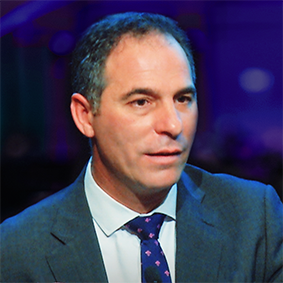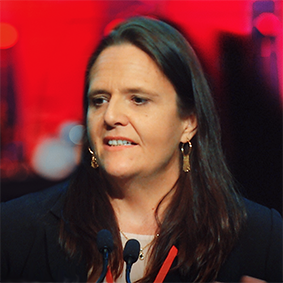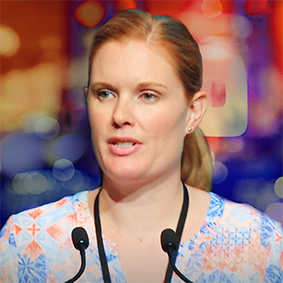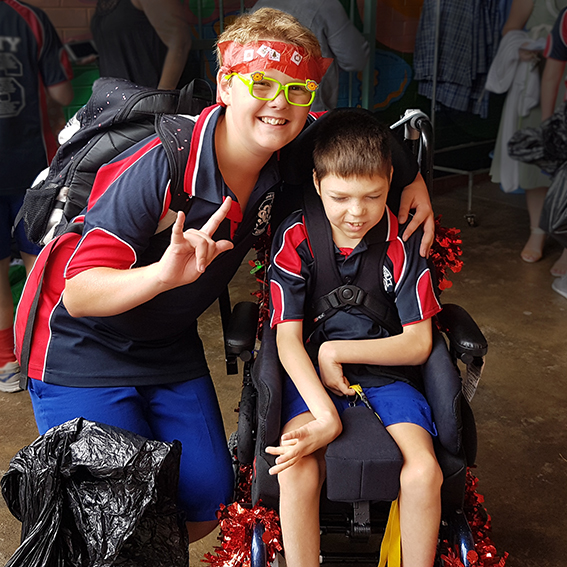ACCESS TALKS: TEACHER IMPACT
A compilation highlighting the vital role classroom teachers have in the inclusive education paradigm. Classroom teacher accountability, the role of support teachers and teacher aides and delegation of responsibility are considered, as is the concept of mini-special-classrooms within mainstream classrooms.
This transcript has been corrected and edited slightly for clarity.
Simona D’Alessio
What we learnt, after 40 years of integration, in my country [Italy] is that in order to develop an inclusive system, it’s very important that classroom teachers are made accountable for the learning outcomes of children with disabilities.
Usually, what we saw in Italy, is when support teachers spend most of their time teaching children with disability in the mainstream classroom, we have weaken the phenomenon of the delegation and what happens is we have the reproduction of the special course-the special classroom, so to say, within the same classroom; so students with disabilities are taught secularly within the same classroom or sometimes in a special unit outside the classroom, directly by the support teacher. This is not something that should be happening unless it is absolutely necessary. So it is very important that the policies you are developing in Australia make classroom teachers fully responsible for the education and the learning outcomes of students with disabilities. That means support teachers and learning support assistants are needed, very much needed, within the mainstream classroom but they should be working with the classroom teacher to improve disabled student’s capacity to work with the overall student population in the classroom.
There’s a very interesting directive that was passed in Canada […] that argues that a support teacher should spend 60 per cent of their time supporting classroom teachers and basically improving the quality of oral distraction in the classroom. Then they should be spending 25 per cent of their time teaching students with disabilities inside or outside the classroom, whenever needed and finally, 15 per cent of their time should be spent on looking at planning or organisational duties. This is only to remind you that it’s very important that classroom teachers are the ones that, as much as they can, differentiate to personalise their teaching strategies and learning objectives so students with disabilities can really become full members of the classroom.
Loren Swancutt
I would encourage you to make change from the bottom up.
I think it’s far more authentic than when your hand is forced from the top down.
Even if you’re not in a position to go across the entire school, like I have been fortunate to be able to do, you can still find pockets of hope.
In my previous school settings–I’ve worked in two schools that were very heavily segregated–I still worked very hard to find opportunities for inclusion within them. I would pair with regular classroom teachers and I would take along my little class of special education students to those classes, and we would still make it work. We were silent enough that it didn’t attract too much attention from the principals, who were very resistant. It didn’t affect the time table. The other teacher was very onboard, so they weren’t complaining, and I was there to assist them, obviously. So, we had little pockets of inclusion happening underneath the surface that nobody really knew about. I think it’s important to look out for and grow those pockets and eventually you will find it will bubble up to the surface, but you’ve got to be patient and you’ve got to be willing to try.
Gina Wilson-Burns
We’re going to fight hard for our kids. We’re going to fight for their lives. If the teachers are wanting to come along on that journey, we will also fight really hard for them to make sure they’ve got the supports they need and we’re good allies to have.
I just want teachers to be confident knowing that we actually really want you to get what you need to be able to make this happen.
And the second thing, as my takeaway is, if not ask who? And if not now, when?
Last updated August 24, 2018
- Disability Standards for Education [opens external tab PDF]
- ACARA -Student Diversity. [opens external tab: SINE website]
ACARA is committed to the development of a high-quality curriculum for all Australian students, one that promotes excellence and equity in education. All students are entitled to rigorous, relevant and engaging learning programs drawn from a challenging curriculum that addresses their individual learning needs. Teachers will use the Australian Curriculum to develop teaching and learning programs that build on students’ interests, strengths, goals and learning needs and address the cognitive, affective, physical, social and aesthetic needs of all students.
ALSO IN THIS SECTION:

The teachers’ impact on inclusive education, Jihad Dib former High School Principal, now Member for Lakemba
MORE ACCESS TALKS:

WHAT IS INCLUSION
The promotion, adoption and implementation of inclusive practices, which involves changing policies, practices and attitudes within schools.

HOW WE INCLUDE
Creating inclusive classrooms & schools starts with vision, policy, systems change, curriculum design and teaching practice.

WHY INCLUDE
High quality education & supports enable all students to acquire success in their education and is the basis of an inclusive life and society.

AUSTRALIAN EXPERIENCE
Exemplar inclusive educational practices are happening in Australia. See the possibility and potential of inclusion here and now.

CHANGING MINDSETS
Whole school transformation requires courage, leadership and honest reflection to identify the need for change and set about making it happen.
NOW EXPLORE ACCESS READS

WHAT IS INCLUSION
The promotion, adoption and implementation of inclusive practices, which involves changing policies, practices and attitudes within schools.

HOW WE INCLUDE
Inclusive classrooms and schools embrace universal design as the foundation for cultivating inclusive attitudes and practices.

CHANGING MINDSETS
Bringing about change one mind at a time is integral to improving the lives of people with disability.

AUSTRALIAN EXPERIENCE
Exemplar inclusive educational practices are happening in Australia. See the possibility and potential of Inclusion here and now.

WHY INCLUDE
All children have the right to be included, to be represented in, to have access to and to receive high-quality education and supports.

TEACHER IMPACT
All classroom teachers have a role in creating schools & learning environments where all children can learn and feel they belong.
A FAMILY ADVOCACY INITIATIVE
This site is edited and maintained by the Advocacy and Leadership Development team.
Image attributions: photos supplied and screen shots from Access Symposium videos.


